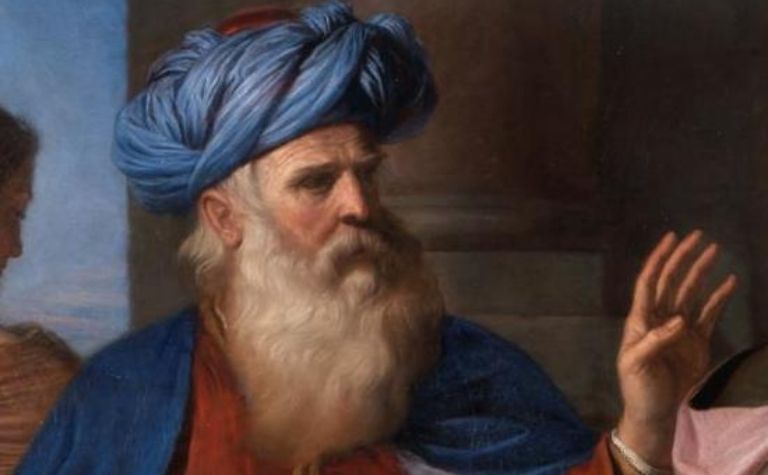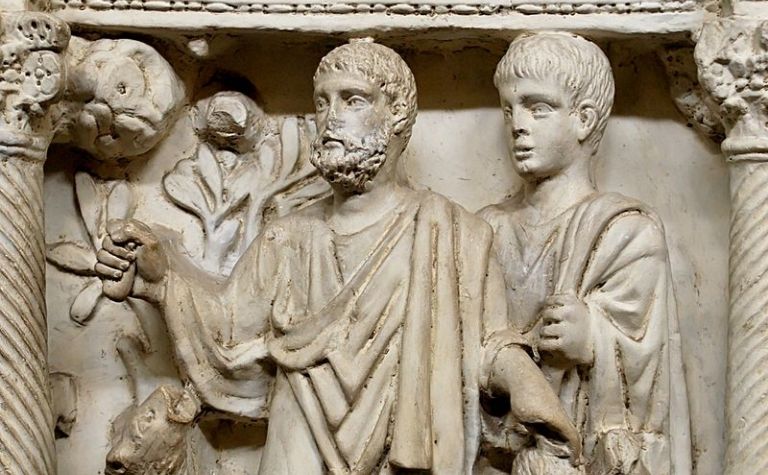Abraham is one of the most important and interesting figures in the Bible. His story, which is told in the book of Genesis, has been read and taught for thousands of years. One of the key moments in Abraham’s life is when God calls him. A question many Bible readers ask is why God chose Abraham.
The Bible doesn’t explicitly say why God chose Abraham. According to Bible scholars who address the question, from a human and historical point of view, God’s call of Abraham was not due to any merit found in the patriarch. Instead, God chose Abraham according to his sovereign will.
How does God call Abraham? Why did God call Abraham and not someone else? What did God call Abraham to do? Keep reading to learn the answers to these questions and others.
Also see Why Did God Hate Esau? to learn more.

God’s call on the life of Abraham
Abraham is one of the most important characters, not only in Genesis but in the entire Bible. While he is mentioned throughout Scripture, he is the main character in Genesis 12-25. Abraham’s name (Abram) is first found in Genesis 11:27-32, but his call is described at the beginning of chapter 12.
What is God’s call? The word “call” refers to God summoning a person, which is more of an order or command as opposed to a request or invitation. He may call someone to faith; that is, to believe in him. God may also call someone to a specific task, like delivering a message to another person or performing a certain deed.
How does God call Abraham? God went to Abraham and spoke to him. God commanded Abraham to do a certain action (see below) and then told him what the results of his obedience would be. His call on Abraham’s life was clear, powerful, and irrevocable. The task wasn’t going to be easy, and some of the outcomes wouldn’t even come to fruition in Abraham’s lifetime.
Why did God call Abraham and not someone else? Many Bible readers want to know why God called Abraham and not someone else who was living at the time. The Bible doesn’t provide an answer to the question, so any detailed response is conjecture. What scholars teach is that calling Abraham was God’s sovereign choice. For example:
“The call and promises constitute the election of God, though the term is not used; it was the sovereign unpredictable choice of God to single out Abram as the recipient of the message contained in vv. 2f.” ~ F.F. Bruce, The International Bible Commentary, p.123
What does it mean that Abraham was God’s sovereign choice? In response to the question, it means that only God knows why he chose Abraham. God’s “sovereignty” refers to his rule over all things, including people. His knowledge and wisdom and infinite and sometimes incomprehensible to people. Sometimes in the Bible, God reveals his reason for doing something, but other times not much information is given, which is the case with Abraham’s call.
Isaiah 55:8-9 reads, “For my thoughts are not your thoughts, neither are your ways my ways, declares the LORD. For as the heavens are higher than the earth, so are my ways higher than your ways and my thoughts than your thoughts.” (ESV)
Also see How Old Was Jeremiah When God Called Him? to learn more.

What did God call Abraham to do?
Genesis 12:1-3 recounts God’s call to Abraham and verses 4-9 record the patriarch’s obedience. God tells Abraham to leave his current location of Haran and his family and move to another place designated for him. God’s promise to Abraham was threefold:
- (1) that he would have land
- (2) that he would become a great nation
- (3) that he would be a blessing to others
God promises Abraham land
Genesis 12:1 reads, “Now the LORD said to Abram, ‘Go from your country and your kindred and your father’s house to the land that I will show you.'” God called Abraham while he was in Haran, which is where his father Terah had settled. The land Abraham went to was called Canaan and is often referred to as the Promised Land.
Abraham’s obedience is recorded a few verses later: “So Abram went, as the LORD had told him, and Lot went with him. Abram was seventy-five years old when he departed from Haran. And Abram took Sarai his wife, and Lot his brother’s son, and all their possessions that they had gathered, and the people that they had acquired in Haran, and they set out to go to the land of Canaan” (12:4-5a).
This is the only one of the three promises of God that Abraham would receive in his lifetime. The other two would take root in his lifetime, but not come to fruition until generations later. Abraham obeyed God’s call and demonstrated great faith in doing so. Other parts of the Bible praise Abraham’s response to God’s call.
“By faith Abraham obeyed when he was called to go out to a place that he was to receive as an inheritance. And he went out, not knowing where he was going.” ~ Hebrews 11:8
Also see Did God Create Dinosaurs? to learn more.
God promises Abraham that he will become a great nation
Genesis 12:2 reads, “And I will make of you a great nation, and I will bless you and make your name great, so that you will be a blessing.” Abraham’s descendants would eventually turn into the nation of Israel. God reiterates this promise to Abraham many times.
“I will surely bless you, and I will multiply your descendants like the stars in the sky and the sand on the seashore. Your descendants will possess the gates of their enemies.” ~ Genesis 22:17
God promises Abraham that he will be blessed and bless others
Genesis 12:3 reads, “I will bless those who bless you, and him who dishonors you I will curse, and in you all the families of the earth shall be blessed.” In Genesis 11:1-9, God scattered people as a result of their idolatrous work on the Tower of Babel.
Through Abraham, God sought out those scattered people. Abraham would be the father of the nation of Israel, and God would use Israel to reach non-Israelites (or Gentiles) as well.
- Acts 3:25, “And you are sons of the prophets and of the covenant God made with your fathers when He said to Abraham, ‘Through your offspring all the families of the earth will be blessed.'”
- Galatians 3:8, “The Scripture foresaw that God would justify the Gentiles by faith, and foretold the gospel to Abraham: ‘All nations will be blessed through you.'”
Also see Why Does God Allow Suffering? to learn more.
Related Articles
To many Bible readers, God's statement "Jacob I loved, but Esau I hated" (Rom. 9:13; Mal. 1:3) is stunning and confusing. What possible explanation is there for God to love Jacob, yet hate Esau? How...
The prophet Jeremiah is one of the most fascinating people in the Bible. The book named after him contains moments of hope in the midst of tremendous struggle and despair. People often find...
